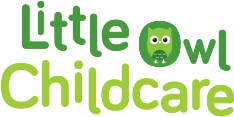Why do we have books in our children’s bedrooms, on the shelves and in early years settings? Is it just about reading skills?
You might be surprised at the numerus benefits of storytelling in the early years. Stories have so much to offer, they develop listening and communication skills. They improve concentration and memory. A lot of stories and books will provide children with new facts and information, for example about the weather or how flowers might grow. This will also support children to make important links between spoken and written words, widening their vocabulary. Storytelling can be fun to use props and characters supporting a child to become engaged and involved in the story, allowing them to understand what might be happening and what might happen next, creating a sense of wonder.
However, storytelling does not necessary mean reading from a book. Storytelling can be the adult ‘telling’ the story, no book just themselves. Adults can make eye-contact with the children, see their reactions, expressions. Also vice versa, the children can see the adults hands, their body language, how they might feel. The storytellers tone of voice and facial expressions, all of this becomes more obvious and engaging as there are no pictures to detract, their imagination can run wild. This creates a completely different experience for the child, taking away skills and memories that will last a life time.
“If history were taught in the form of stories, it would never be forgotten.”
(Rudyard Kipling)

Recent Comments